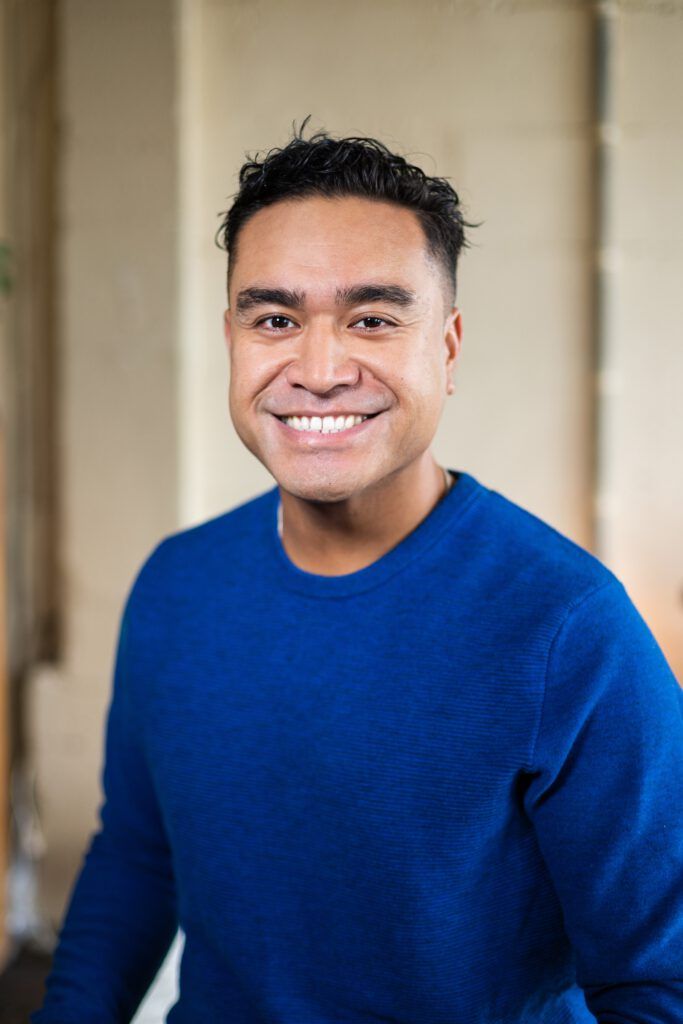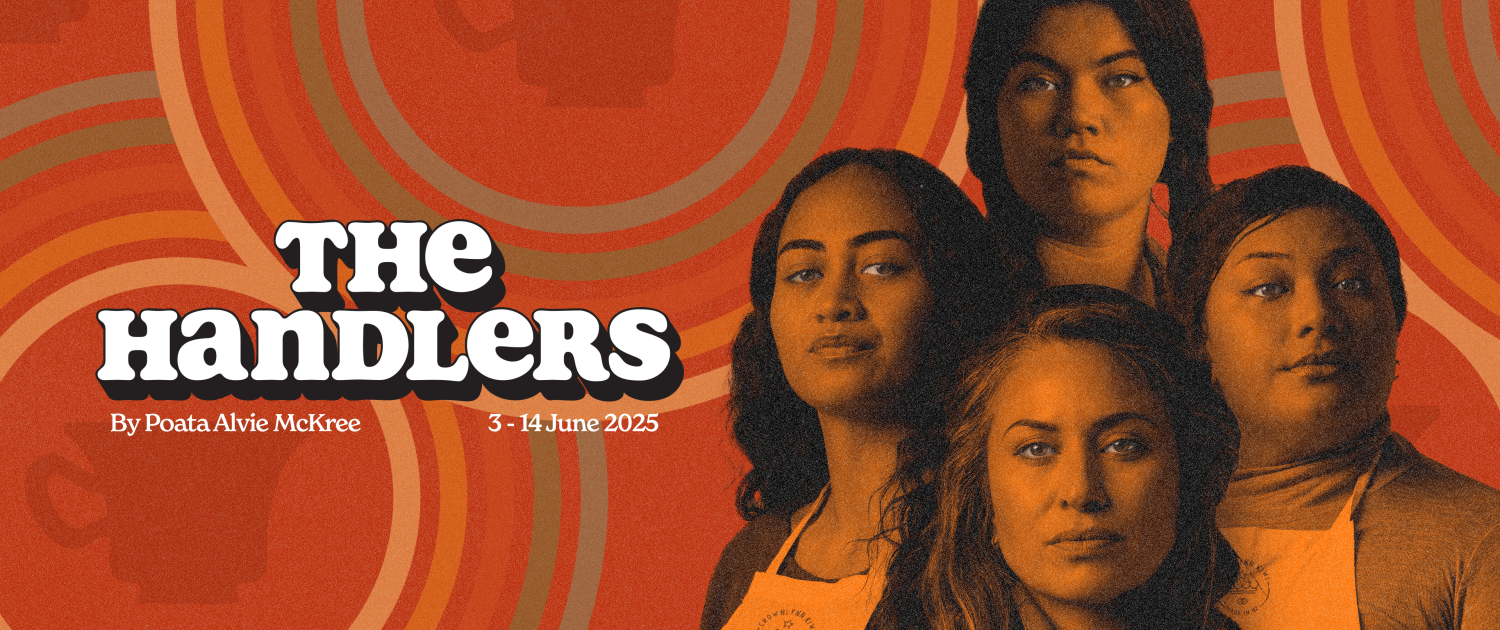

The Handlers honour the legacy of Māori and Pasifika women who worked at the Crown Lynn factory in the 1970s, bringing their stories to life on stage at Circa Theatre.
Photo/Theatrereview
'It's not just festival moments': Director urges support for indigenous stories
Sepelini Mua’au reflects on what it means to tell cultural stories on civic stages, and whether those spaces are truly built to support them beyond festival moments.


Ōtara Youth Hub closure: A critical loss for rangatahi as funding cuts take their toll

Jenny Salesa argues for urgent cost-of-living relief as Govt defends economic record

Fiji welcomes Tonga's bid for a diplomatic mission in Suva

Kiribati youth maintain culture through music and connection

Ōtara Youth Hub closure: A critical loss for rangatahi as funding cuts take their toll

Jenny Salesa argues for urgent cost-of-living relief as Govt defends economic record

Fiji welcomes Tonga's bid for a diplomatic mission in Suva
The Handlers, a play about Māori and Pasifika women working in factories like Crown Lynn, opened at Circa Theatre in Wellington this week as part of the 2025 Kia Mau Festival.
Speaking ahead of opening night, co-director Sepelini Mua’au says that while it is easy to celebrate Indigenous storytelling during high-profile events like the festival, councils and publicly-funded venues must support Māori and Pasifika creatives all year round.
Mua’au, a Sāmoan theatre maker whose career spans acting, writing, and directing, says it's not just about telling Indigenous stories on stage but also about making sure the spaces hosting them are safe and supportive.
“It’s very easy for us to celebrate this particular moment and this kind of position that I’m in and to talk about it,” Mua’au says. “But how often is this happening is the question?”
Born and raised in Lower Hutt, he is the youngest of four children to parents who migrated from Sāmoa to Aotearoa in the 1970s.
It was not until three years into his theatre studies that he learned his father had lived through the Dawn Raids, a part of Aotearoa New Zealand’s history that was missing from both his formal education and home life.
"That was the first time I'd read about it," Mua’au recalls, referring to Oscar Kightley’s play Dawn Raids.
“I came home … and I was talking to my dad. I said, ‘Oh, you know, I’ve been reading this play about the Dawn Raids’ and was kind of like, ‘Oh yeah, I was there’… it was pretty wild for me,” he says.
“A, to not have met that part of Aotearoa history before, and then B, not even knowing that it was so close to me personally.”
Now co-directing The Handlers, a fictional story based on the experiences of Māori and Pasifika women working at the Crown Lynn factory in the 1970s, Mua’au sees the show as a way to keep that history alive for future generations.
He adds that leadership in civic creative spaces means authentically expressing his identity as a Sāmoan creative.
“I still bring all of the wholeness of me being brown and Samoan into that room.”
Mua’au refers to a conversation he had with respected actor and director Maiava Nathaniel Lees, which affirmed his approach to directing. Maiava emphasised that building genuine relationships matters more than sticking to rigid roles, a value rooted in fa‘asāmoa, the Samoan way of connecting.

Sepelini Mua’au brings fa‘asāmoa values into the rehearsal room, shaping his approach to leadership and storytelling. Photo/circa
“You’re dealing with the human rather than the role,” Maiava told him.
However, Mua’au says the infrastructure often isn’t there to support Indigenous creatives, especially when they’re rapidly elevated into leadership roles without adequate backing.
"Because I’ve been brown and pinpointed as a leader, I’ve been thrust into roles quite quickly. There hasn’t been the same level of care or safety, or allowed time to grow into that."
He credits Kia Mau Festival for doing things differently. "They don’t just ask you to direct and leave you to it.
“They’ve supported this work, looked after the cast, provided a production manager, a stage manager."
He says the play may be set in a 1970s West Auckland factory, but its themes remain relevant today - from gender pay equity and Indigenous labour to the enduring legacies of colonial capitalism.
"It talks about a specific part of history in Aotearoa," Mua’au says. "It also links to the government introducing new amendments around equal pay."
The show is part of a wider movement within Kia Mau Festival, which positions itself not just as an arts platform but as a community-rooted, Indigenous-led civic space.

The wāhine cast of The Handlers, celebrating strength and stories of Māori and Pasifika women. Photo/Kia Mau Festival
It challenges the idea that Māori and Pasifika stories are "niche,” insisting instead that they belong on major stages year-round.
Wellington City Council helped fund the Kia Mau Festival with $100,000.
Local Democracy Reporting asked how the council ensures the venues and events it funds support equity, representation, and cultural safety for Indigenous creatives.
“Wellington City Council grant criteria is in accordance with Aho Tini priority areas and focuses on Aho Tangata. Our people - connected, engaged, inclusive, accessible communities," the council responded in a statement.
"Our communities are connected by diverse arts and cultural expression. Aho Hononga. Partnership with mana whenua and Māori. We honour Te Tiriti o Waitangi and the Council’s partnership with mana whenua in the outcomes we deliver. Aho Whenua. Our places, spaces and venues - our city is alive. Our city is alive with the possibility of art around every corner."
Circa Theatre was also approached for comment, but did not respond by the deadline.
The Handlers is showing at Circa Theatre until 14 June. Tickets and more information are available here.
LDR is local body journalism co-funded by RNZ and NZ On Air.
